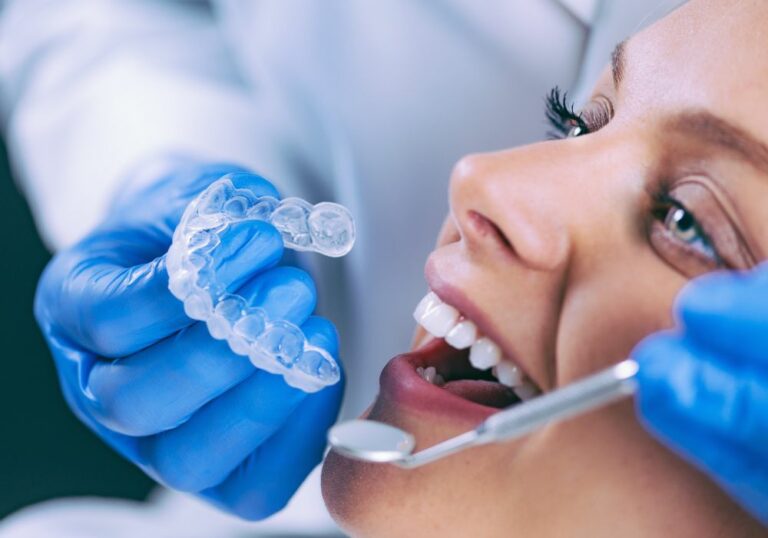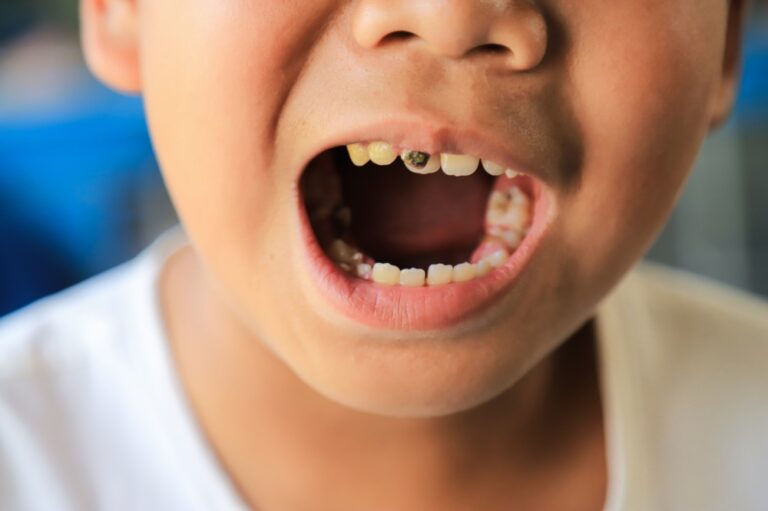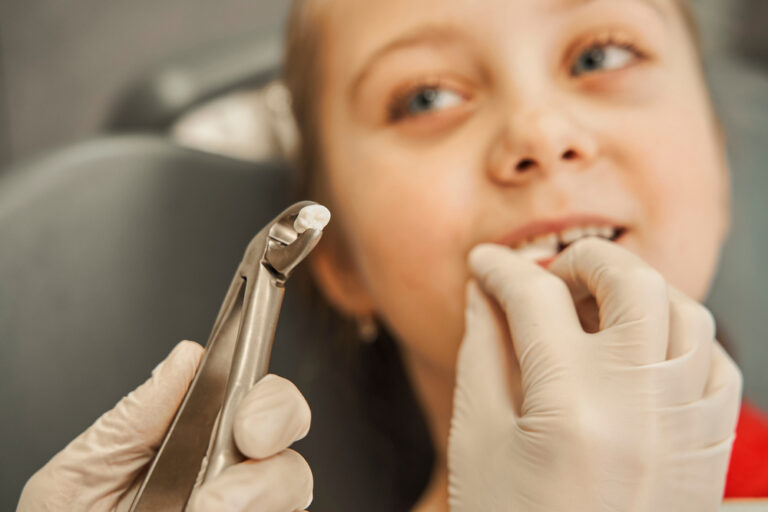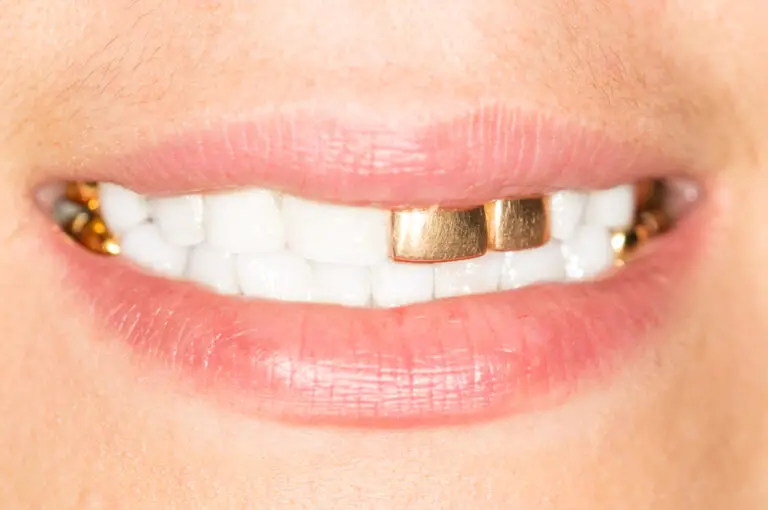Do you ever wonder if crooked teeth are genetic? Well, the answer is yes, genetics can play a role in the alignment of your teeth. While there are other factors that can contribute to crooked teeth, such as poor oral hygiene and certain medical conditions, genetics can predispose you to having misaligned teeth.
According to the American Association of Orthodontists, an estimated 4 million people wear braces on their teeth. This suggests that crooked teeth are a common problem that many people face. While some people may have naturally straight teeth, others may require orthodontic treatment to correct the alignment of their teeth. Understanding the role of genetics in crooked teeth can help you take steps to maintain good oral health and potentially prevent misaligned teeth in the future.
It’s important to note that genetics are not the only factor that can contribute to crooked teeth. Other factors such as thumb-sucking, tongue thrusting, and trauma to the mouth can also affect the alignment of your teeth. However, if you have a family history of crooked teeth, it may be worth discussing with your dentist or orthodontist to see if you are at a higher risk for misaligned teeth. By understanding the causes of crooked teeth, you can take steps to maintain good oral health and potentially prevent the need for orthodontic treatment in the future.
Understanding Genetics
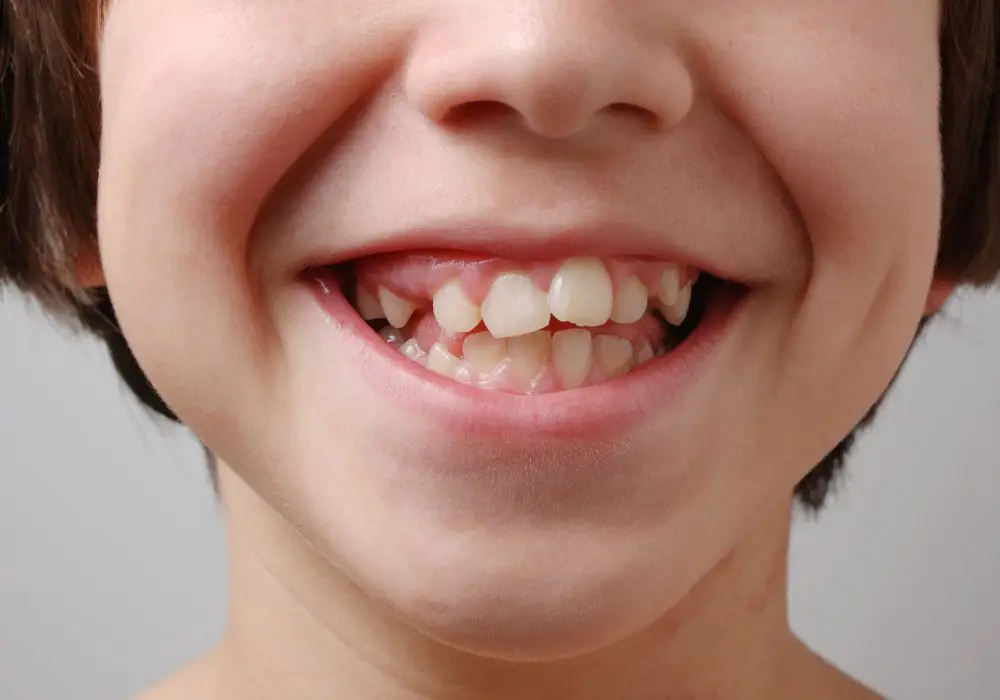
Genetics is the study of how traits are passed down from one generation to another. Every person has 46 chromosomes, which are made up of DNA. DNA contains the genetic code that determines your physical characteristics, including your teeth.
When it comes to crooked teeth, genetics can play a role. The shape and structure of your jaw, as well as the number of teeth you have, are mainly determined by your genetics. This means that if your parents have crooked teeth, you may be more likely to develop them as well.
However, genetics is not the only factor that can contribute to crooked teeth. Other factors that can cause crooked teeth include poor oral hygiene, mouth breathing, thumb sucking, and injury to the teeth or jaw.
It’s important to note that just because you have a genetic predisposition to crooked teeth, it doesn’t mean you’re destined to have them. There are several treatments available to straighten teeth, including braces, clear aligners, and retainers. It’s important to speak with your dentist or orthodontist to determine the best course of treatment for you.
In conclusion, genetics can play a role in the development of crooked teeth, but it’s not the only factor. Other factors such as poor oral hygiene and habits like thumb sucking can also contribute to crooked teeth. If you’re concerned about your teeth, speak with your dentist or orthodontist to determine the best course of treatment for you.
Crooked Teeth: A Genetic Trait?
Crooked teeth are a common dental issue affecting people of all ages. While some people believe that crooked teeth are purely genetic, others hold opposing views. This section explores the theory that crooked teeth are a genetic trait, supported by studies, and opposing views on the theory.
Studies Supporting the Theory
Several studies have been conducted to determine the genetic factors that contribute to crooked teeth. According to a study published in the American Journal of Orthodontics and Dentofacial Orthopedics, genetic factors account for 57% of the variability in tooth alignment. The study found that certain genes are associated with tooth size and jaw growth, which can affect the alignment of teeth.
Another study published in the Journal of Dental Research found that genetic factors play a significant role in the development of malocclusion, a condition characterized by misaligned teeth and jaws. The study identified several genes associated with tooth and jaw development, which can influence the risk of developing malocclusion.
Opposing Views on the Theory
While some experts believe that crooked teeth are purely genetic, others hold opposing views. Some experts argue that environmental factors, such as mouth breathing, thumb sucking, and tongue thrusting, can also contribute to the development of crooked teeth. These habits can put pressure on the teeth and jaws, causing them to shift out of alignment.
Other experts suggest that a combination of genetic and environmental factors can contribute to the development of crooked teeth. For example, genetic factors may determine the size and shape of the jaw, while environmental factors such as poor nutrition and oral hygiene can contribute to tooth decay and gum disease, which can affect the alignment of teeth.
In conclusion, while the theory that crooked teeth are a genetic trait is supported by studies, there are also opposing views that suggest a combination of genetic and environmental factors can contribute to the development of crooked teeth. It’s important to maintain good oral hygiene and seek early orthodontic treatment to address crooked teeth and prevent further dental issues.
The Role of Environmental Factors
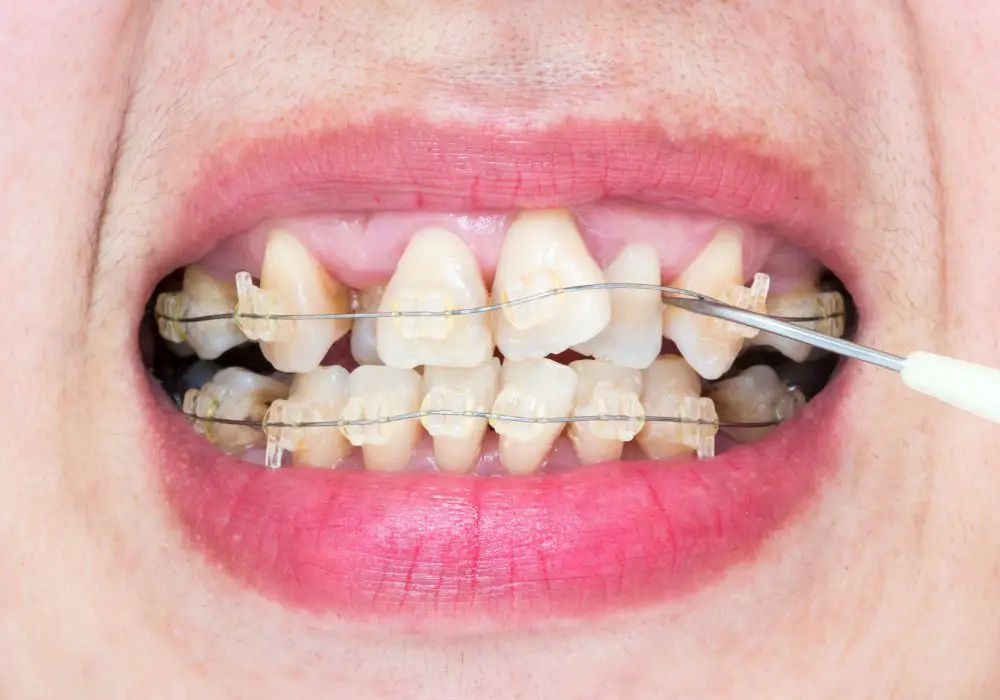
While genetics can play a role in the development of crooked teeth, environmental factors also have a significant impact. Your habits and lifestyle choices can greatly affect the alignment of your teeth. Here are some environmental factors that can contribute to crooked teeth:
Poor Oral Hygiene
Neglecting your oral hygiene can lead to a variety of dental problems, including crooked teeth. Poor brushing and flossing habits can cause plaque buildup and tooth decay, which can lead to tooth loss and misalignment of remaining teeth. Regular dental checkups and cleanings can help prevent these issues and maintain proper tooth alignment.
Mouth Breathing
Breathing through your mouth instead of your nose can cause problems with tooth alignment. Mouth breathing can cause the tongue to rest in a lower position, which can lead to an overbite or an open bite. If you have trouble breathing through your nose, consult with a doctor or dentist to find a solution.
Thumb Sucking and Pacifier Use
Thumb sucking and pacifier use can cause the teeth to shift out of alignment. These habits can put pressure on the teeth and jaws, causing changes in the bite and tooth position. It’s important to break these habits early on to prevent long-term dental problems.
Injury or Trauma
Injuries to the mouth or face can cause damage to the teeth and jaws, leading to misalignment. It’s important to seek prompt dental care if you experience any trauma to the mouth or face.
Diet
Your diet can also play a role in the alignment of your teeth. Consuming sugary and acidic foods and drinks can lead to tooth decay and erosion, which can cause changes in tooth position. Eating a balanced and nutritious diet can help maintain proper tooth alignment.
In conclusion, while genetics can contribute to crooked teeth, environmental factors also play a significant role. Practicing good oral hygiene, avoiding harmful habits, seeking prompt dental care for injuries, and maintaining a healthy diet can all help prevent crooked teeth.
Genetic Testing and Crooked Teeth
If you’re curious about whether your crooked teeth are genetic, you may be interested in genetic testing. Genetic testing can help identify whether you carry certain genes that are linked to dental issues, including crooked teeth.
There are a few different types of genetic testing that can be used to determine whether your crooked teeth are genetic. One of the most common types of genetic testing is a DNA test. This test can be done by collecting a sample of your saliva or blood, which is then analyzed in a laboratory.
During a DNA test, the lab will look for specific genes that are linked to crooked teeth. If you have these genes, it may be more likely that you will develop crooked teeth at some point in your life. However, it’s important to note that just because you have these genes, it doesn’t necessarily mean that you will develop crooked teeth.
Another type of genetic testing that can be used to determine whether your crooked teeth are genetic is a genetic panel. A genetic panel is a group of tests that are done at the same time to look for specific genes that are linked to certain health conditions, including dental issues.
If you’re interested in genetic testing to determine whether your crooked teeth are genetic, it’s important to talk to your dentist or doctor. They can help you determine whether genetic testing is right for you and can refer you to a genetic counselor if needed.
Overall, while genetic testing can provide valuable insights into the likelihood of developing crooked teeth, it’s important to remember that genetics is just one factor that can contribute to dental issues. Other factors, such as poor oral hygiene, diet, and lifestyle habits, can also play a role in the development of crooked teeth.
Treatment Options for Crooked Teeth
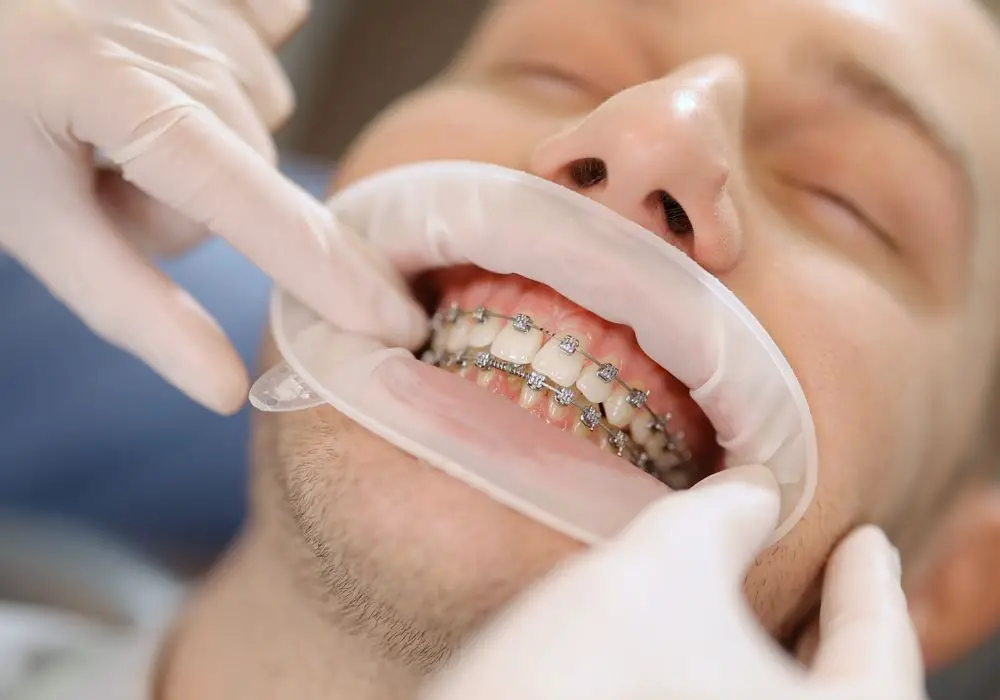
If you have crooked teeth, there are several treatment options available to help straighten them. In this section, we will discuss two main treatment options: orthodontic treatment and surgical options.
Orthodontic Treatment
Orthodontic treatment is the most common way to treat crooked teeth. This treatment involves using braces or clear aligners to apply pressure to the teeth over time, gradually moving them into the correct position.
Braces are made up of brackets and wires that are attached to the teeth. The wires are tightened regularly to apply pressure and move the teeth into the desired position. Clear aligners, on the other hand, are custom-made trays that fit over the teeth and apply pressure to move them. They are virtually invisible and can be removed for eating and brushing.
Orthodontic treatment can take several months to a few years, depending on the severity of the crooked teeth. It is important to follow the orthodontist’s instructions carefully to ensure the best results.
Surgical Options
In some cases, orthodontic treatment alone may not be enough to correct severely crooked teeth. In these cases, surgical options may be necessary.
One common surgical option is orthognathic surgery, which involves repositioning the jaw to correct a misaligned bite. This surgery is usually done in combination with orthodontic treatment to achieve the best results.
Another surgical option is tooth extraction, which may be necessary if there is not enough room in the mouth for all of the teeth. This can help create space for the remaining teeth to move into the correct position.
It is important to note that surgical options are typically reserved for more severe cases of crooked teeth and should only be considered after consulting with an orthodontist.
Overall, there are several treatment options available for crooked teeth. Orthodontic treatment is the most common and effective way to straighten teeth, while surgical options may be necessary in more severe cases. Consult with an orthodontist to determine the best treatment plan for your individual needs.
Prevention and Care
While genetics may play a role in the development of crooked teeth, there are steps you can take to prevent or minimize the severity of crooked teeth. Here are some tips to help you maintain healthy teeth:
1. Brush and Floss Regularly
Brushing and flossing your teeth regularly can help prevent tooth decay and gum disease, which can contribute to crooked teeth. Make sure to brush your teeth twice a day and floss at least once a day.
2. Visit Your Dentist Regularly
Regular dental check-ups can help detect and treat dental problems early on. Your dentist can also provide advice on how to maintain healthy teeth and gums.
3. Avoid Bad Habits
Certain habits, such as thumb-sucking, tongue-thrusting, and mouth-breathing, can contribute to crooked teeth. Try to avoid these habits or seek help if you are having trouble breaking them.
4. Wear a Mouthguard
If you play sports or grind your teeth at night, wearing a mouthguard can help protect your teeth from damage and prevent crooked teeth.
5. Consider Orthodontic Treatment
If you already have crooked teeth, orthodontic treatment, such as braces or Invisalign, can help straighten them. Your orthodontist can provide advice on the best treatment options for your specific needs.
By following these tips, you can help prevent or minimize the severity of crooked teeth. Remember to always consult with your dentist or orthodontist for personalized advice and treatment.
Frequently Asked Questions
Can crooked teeth be inherited?
Yes, crooked teeth can be inherited. Genetics plays a significant role in the alignment of your teeth. If someone in your family has crooked teeth, there is a higher chance that you may have them too.
What are the causes of crooked teeth?
Apart from genetics, there are several other causes of crooked teeth. These include birth defects, poor oral hygiene, thumb sucking, tongue thrusting, and injuries to the jaw. Additionally, some habits like nail-biting and teeth grinding can also lead to crooked teeth.
Are there any ways to prevent crooked teeth?
While genetics do play a significant role in the alignment of your teeth, there are some ways to prevent crooked teeth. Good oral hygiene habits, such as brushing and flossing regularly, can help prevent gum disease and tooth decay, which can lead to crooked teeth. Additionally, avoiding habits like thumb sucking and tongue thrusting can help prevent crooked teeth.
How can crooked teeth be treated?
There are several treatments available for crooked teeth, depending on the severity of the condition. Braces and clear aligners are common treatments that can help straighten teeth. In severe cases, surgery may be required to correct jaw alignment issues.
What are the risks of leaving crooked teeth untreated?
Leaving crooked teeth untreated can lead to several oral health issues. Crooked teeth can make it difficult to clean your teeth properly, which can lead to tooth decay and gum disease. Additionally, crooked teeth can cause jaw pain and headaches, and can even affect your speech.
Can crooked teeth affect overall health?
While crooked teeth may not directly affect your overall health, they can lead to oral health issues that can impact your overall health. Gum disease, for example, has been linked to several health issues, including heart disease and diabetes. Therefore, it is important to take care of your oral health and address any issues with crooked teeth promptly.

